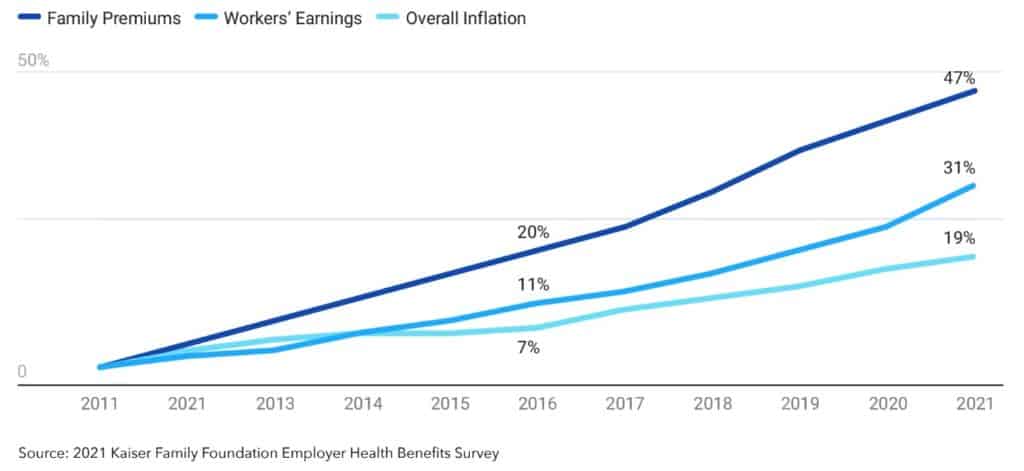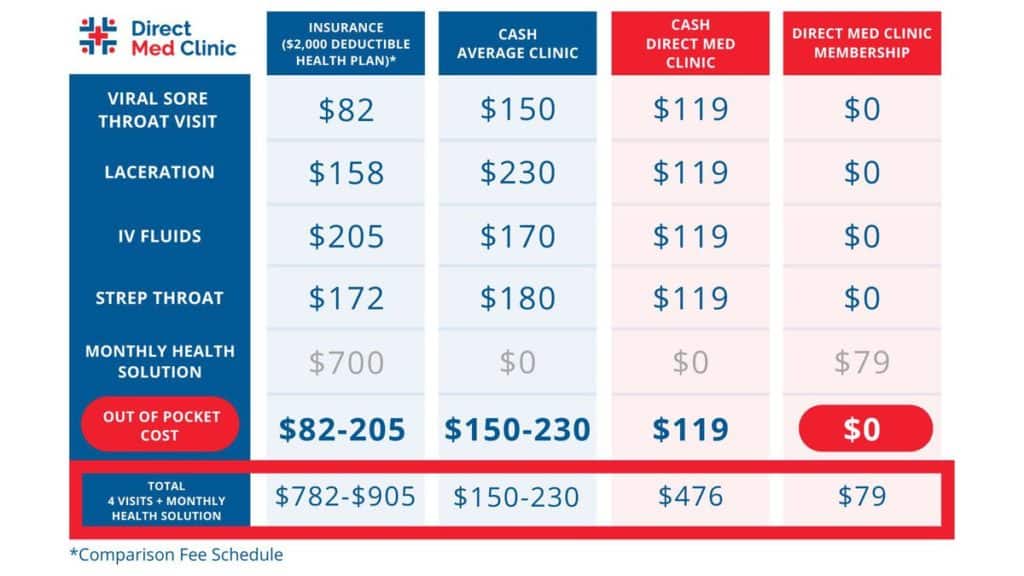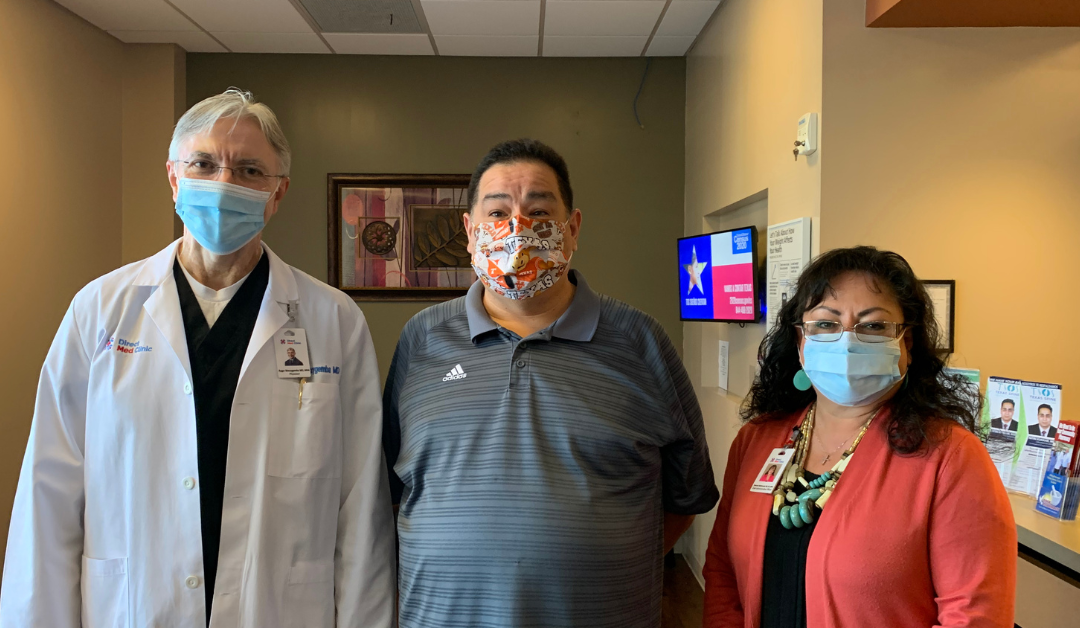The terms “health insurance” and “healthcare” tend to get confused with each other by the general public. However, understanding the critical differences between the two could make all the difference in their financial and physical well-being. Let’s take a look at healthcare Vs Health Insurance and the challenges associated with them.
What Is Health Insurance?
Health insurance, also known as Health Insurance Coverage, is the instrument that reimburses patients for their healthcare needs. It’s normally used to cover medical expenses due to illnesses, which can mean hospitalization, medicine, and health care professional visits.
It’s often the only health care access most Americans have, and it consists of a health plan offered by different health insurance companies, and policyholders pay premiums based on the health coverage in the policy.
The Affordable Care Act (ACA) limits the profit margin insurance companies can collect on these premiums to a Medical Loss Ratio of 20 percent. Unfortunately, the cost of health insurance is tied to the cost, quality, and availability of healthcare, which continues to rise alarmingly.

Only in the last decade, family premiums for employer-sponsored health insurance reached $22,000 in 2021, which translates to a 47% increase since 2011, steadily outpacing income growth and inflation. This can make selecting the wrong health insurance plans a burden for finances and very hard to meet for an average household income.
What Is Healthcare?
Healthcare is the provision of medical care and it encompasses all the methods, procedures, and practices devoted to improving and maintaining health and wellness.
Practitioners in the healthcare field include doctors and nurses optometrists, mental health professionals, massage therapists, pharmaceutical companies, and medical supplies and equipment providers. Therefore, health care costs directly reflect these skills, products, and services.
Healthcare is often based on primary care, day-to-day care given by a health care professional to treat current conditions like chronic diseases, or to practice preventative medical care.
In other words, healthcare means access to care and it can come in many different forms.
Health Insurance Doesn’t Guarantee Adequate Healthcare
The average American has become functionally uninsured, forced to pay outrageously high deductibles on policies that may not cover as much care as they genuinely need.
According to a Los Angeles Times article, single-coverage deductibles soared from $379 in 2006 to $1,350 by 2018. Meanwhile, a mere half of working-age adults have more than $2,000 in the bank at any given time.
As a result, people skip important health care professional visits and go without such wellness essentials as nutritious food to make their premium payments.
Your health care professional or health insurance issuer has the moral obligation to help you understand their policy and repayment options and has to have your best interests at heart or legal consequences could be faced for those breaching the new Consolidated Appropriations Act put in place in 2022.
Even when there are laws to protect you while navigating the healthcare system, you need to understand as much as possible to ensure your own well-being.
We’re going to show you the differences and why having a health care professional as your healthcare ally will benefit you.
4 Reasons Why Health Insurance Is Not The Same As Healthcare
Access to Care
Access to care can be named as one of the main differences between health insurance and healthcare. Having any health plan given by health insurance providers doesn’t mean that you will have access to health care services when you need them.
At the same time, waiting times for a doctor visit can be very high, and the time spent in the consult very low, where your concerns might not be answered because the doctor didn’t dedicate enough time to you.
When selecting the right healthcare approach with the correct health care providers, these difficulties can be eliminated.
Under our model Direct Primary Care, we provide access to care. You will have the ability to reach your health care provider at any given time, even after hours, and they will dedicate the time you need.

Preventive Care
Hand-in-hand by access to care is preventive care.
This is an aspect that is not applied by many Americans. Nonetheless, focusing on preventing care is what will avoid many severe health complications throughout life.
With access to care and health care services at your disposal, you can have annual wellness checkups, chronic disease management, and basic but valuable exams like blood pressure, cholesterol, and many more, health care coverage that you might not have available with your individual health insurance or employer-sponsored health insurance, and at the same time, having an amazing quality of care.
Complexity
For most Americans, understanding health insurance different plans and what is best for their situation is a complex matter. It’s not a straightforward process and this can lead to many issues like spending thousands of dollars on not needed plans, disparities in health coverage, disruptions in health coverage, misunderstanding in eligibility requirements, and much more.
Explanation of benefits for each plan is not something many health insurance advisors do, leaving many important aspects without an answer.
Pricing
Exaggerated prices are, sadly, a very common aspect of traditional healthcare and health insurance, making it the first bankruptcy reason in the United States.
It can come in many different ways like health insurance premiums, surprise billing by lack of coverage, lack of price transparency, or lack of understanding of individual health plans and general knowledge.
This is a major issue for Americans, but many clinics and doctors providing access to care are willing to go against what is traditional and provide quality care for affordable and transparent prices, just the way we do it in Direct Med Clinic.

What should you do?
Healthcare is an important aspect of human life, so every decision taken should be considered greatly.
There are many medical plans, private insurances, and public insurances that will offer you what they consider is best based on traditional standards, but the economical and healthcare outcome for individuals has been proven to not be the best.
Nothing can replace the real connection with your doctor and quality medical services, and models like Direct Primary Care offer you that while also reducing medical costs.
Having this access to day-to-day care paired with emergency medical coverage is what we considered a great option for your health.


Recent Comments